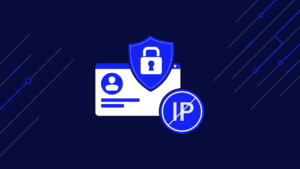Navigating the vast landscape of the internet inevitably involves relinquishing a portion of your personal information to various websites. Take, for instance, the convenience of one-click shopping; such seamless transactions simply cannot occur unless you have entrusted the seller with sensitive details like your banking information beforehand. However, it’s crucial to recognize that many of the convenient features we utilize daily are often sharing our data with third parties in ways that may not align with our best interests. Therefore, it’s imperative to understand precisely what data you are sharing and with whom before you part with it.

To enhance your online privacy, consider these essential steps:
First and foremost, take the time to configure your browser settings to achieve the level of privacy you desire. This will empower you to maintain greater control over your information.
Additionally, be proactive about disabling cookies and blocking intrusive pop-ups. These measures can significantly reduce your vulnerability to malware and unwanted tracking.
Lastly, exercise caution regarding the amount of personal information you disclose on social media platforms. The seemingly harmless act of sharing details about your life can lead to unexpected risks.
Now, let’s delve into the fundamentals of how others might gain access to your private information. While revealing details like your age, birthday, employer, or high school may seem innocuous compared to disclosing your username and password, these bits of personal data can be exploited by online predators, bullies, and spammers more easily than one might assume.

You might find yourself inadvertently sharing more information than you would prefer if you engage in certain behaviors. For instance, allowing your web browser to track and broadcast your online activities can leave you exposed. Similarly, keeping the security and privacy settings on your online accounts set too low can invite unwelcome intrusions. Furthermore, being overly generous with personal information in conversations or posts can broaden your exposure to potential threats. Lastly, connecting to public Wi-Fi networks without proper safeguards can leave your sensitive data vulnerable to interception.
In this digital age, being informed and vigilant about how and with whom you share your information is vital to safeguarding your privacy and security online. So, arm yourself with knowledge and take control of your digital footprint.
Browsing Experience

As you navigate the vast landscape of the internet, your web browser quietly collects and retains a wealth of information—ranging from cookies to your browsing history and various other data points. This information, while convenient for you, can be a treasure trove for advertisers, spammers, and cybercriminals who may seek to exploit it for identity theft or fraudulent activities. To safeguard your personal data and online behavior, one of the simplest yet most effective measures you can take is to modify the “private browsing” settings within your browser. Whether you’re using Chrome, Internet Explorer, Edge, Firefox, or Safari, adjusting these options allows your browser to automatically delete cookies, browsing history, and temporary files every time you close it, ensuring that your digital footprint remains minimal.
Managing Cookies Wisely

Cookies are those small text files that websites place on your device to store information in your browser. When you return to a website, these cookies can retrieve stored data to enhance your user experience—recalling your preferences or remembering actions you’ve taken, such as items added to your shopping cart. While they serve a purpose in making your online experience smoother, cookies can also pose a threat to your privacy. Although they cannot directly harm your computer, they are capable of tracking your online movements across various sites. For instance, if an advertisement for a product you’ve already purchased continues to follow you around the internet, that’s the work of cookies at play. Some of these cookies might linger on your device for weeks, months, or even years.
Disabling cookies entirely might seem like a straightforward solution; however, it often leads to some unintended consequences that could disrupt your browsing experience. Instead, consider adopting a more balanced approach by implementing certain rules: restrict access to third-party cookies, ensure that all cookies are deleted upon closing your browser, and create exceptions for specific websites that you trust and wish to keep cookies from.
Dealing with Pop-Up Intrusions
Encountering unwanted pop-up windows while you browse can be quite annoying.
Safeguarding Your Privacy in the Realm of Social Media
In today’s digital landscape, social media platforms often encourage a culture of openness, leading us to share more broadly than we might intend. While it may feel like you’re communicating within a circle of close friends, the reality is that your online connections likely encompass many who are only casual acquaintances or even complete strangers.

To navigate this intricate web and ensure that you’re sharing information judiciously, consider the following strategies:
First and foremost, prioritize the security of your online sessions. Many websites offer an option to enable secure browsing within their security settings. This simple step can greatly enhance your overall protection.
Next, take the time to familiarize yourself with the privacy and security protocols of the platforms you frequent. Adjust the settings to a level that feels right for you, utilizing the privacy controls to limit what data is accessible to others—especially those who aren’t part of your immediate social circle.
It is also crucial to exercise caution regarding personal information. Avoid divulging sensitive details such as your birth date, mother’s maiden name, home address, previous residences, employer information, birthplace, or educational background. These bits of information are often utilized by banks and other institutions for identity verification, making them potentially valuable assets for malicious actors.
Be wary of accepting friend requests or followers from individuals you do not actually know. A seemingly harmless connection could open the door for someone with nefarious intentions to exploit your network.

Moreover, take a moment to reflect before posting anything impulsively or in a fit of anger. The digital footprint we leave behind can have real-world consequences; there are countless stories of individuals losing job opportunities due to hasty remarks made on social media.
By adopting these practices, you can better protect your personal information while navigating the vast world of social media.
For additional insights and guidance on social networking and privacy considerations, consider exploring the resources available on this topic.
The landscape of online interactions is constantly evolving, and staying informed is vital in safeguarding your privacy in this ever-changing digital environment.uite disruptive—and even more so if those windows lead to harmful websites. Thankfully, most contemporary browsers like Firefox, Internet Explorer, and Chrome come equipped with built-in features designed to block these intrusive pop-ups, either automatically or with a minor tweak in your settings. However, there may be instances where you need to allow pop-ups to access certain websites fully or to utilize all their functionalities. Fortunately, you have the power to manage this on a case-by-case basis through your browser settings.

By taking these precautions and actively managing your browsing environment, you can enjoy a safer and more private internet experience while still benefiting from the conveniences that modern technology offers.
Maxthon
In a digital landscape that constantly shifts and transforms, the importance of safeguarding oneself while navigating the vast array of opportunities presented by the internet has reached unprecedented levels. Selecting a web browser that prioritizes both security and privacy has become a critical decision for users everywhere. Among the myriad choices on the market, one particular browser distinguishes itself through its unwavering dedication to these fundamental principles: Maxthon Browser, which is available for free. This remarkable browser is packed with an extensive array of built-in features aimed at enhancing your online experience, chief among them being an Adblocker and various tools designed to thwart tracking—both essential elements in protecting your privacy as you traverse the digital world.
Maxthon is committed to its purpose, striving to deliver a browsing experience that not only emphasizes safety but also respects the privacy of its users. With a strong emphasis on safeguarding personal information and online behavior from a multitude of threats, Maxthon employs a comprehensive suite of robust strategies focused on securing user data. Through the use of cutting-edge encryption technologies, it guarantees that your sensitive information remains confidential and well-protected as you navigate the web.

When it comes to advocating for online privacy, Maxthon truly excels. This browser is carefully designed with a range of features specifically intended to uphold user confidentiality. These include capabilities for blocking ads, functionalities to prevent tracking, and an incognito mode that enhances anonymity. Together, these integrated tools function harmoniously to eliminate intrusive advertisements and thwart tracking scripts that seek to monitor your online presence. As a result, users can revel in a more secure browsing atmosphere, unburdened by unwelcome interruptions. Moreover, the incognito mode provides an additional layer of defense, enabling individuals to explore the internet without leaving any digital footprints on their devices.
Maxthon’s unwavering commitment to user privacy and security is further exemplified by its consistent updates and improvements. This dedication ensures that users have access to the latest protections against emerging threats, allowing them to enjoy their online experiences with peace of mind. In a time when the stakes for personal privacy are higher than ever, choosing a browser like Maxthon becomes not just a preference but a crucial step toward a safer and more private internet journey.
